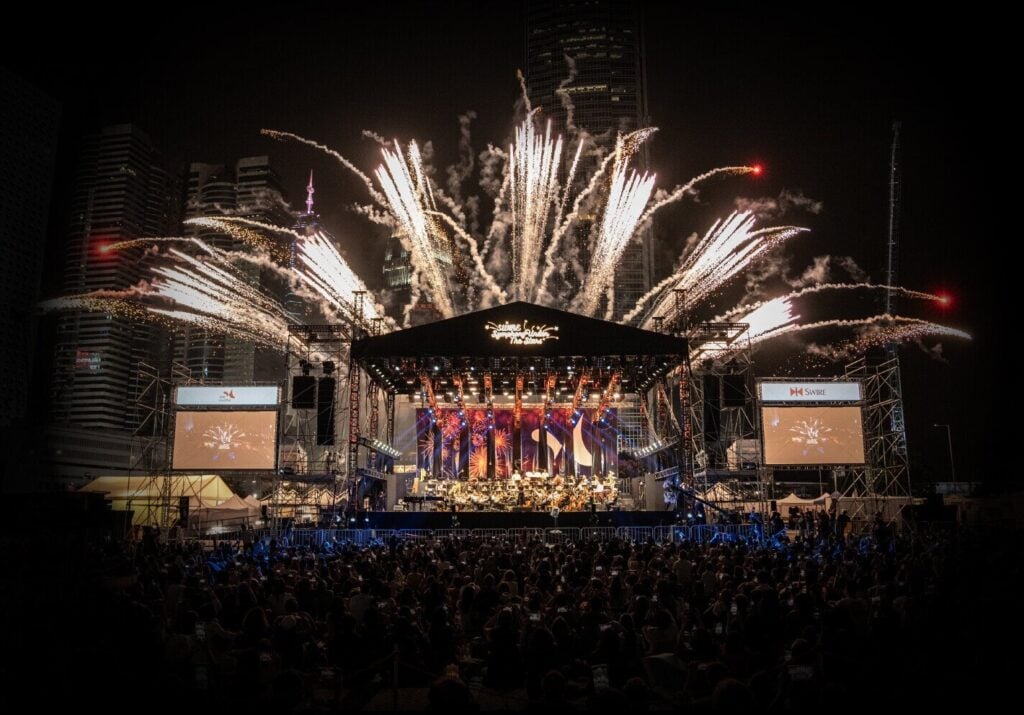
- This event has passed.
EVENT DESCRIPTION
Tai Kwun Contemporary is proud to present the work of pioneering conceptual artist On Kawara, in the first retrospective in the world conceived after his passing. On Kawara revolutionised how art can be constructed and experienced, building a lifelong artistic practice defined by a deeply human approach. Consisting of profound gestures that transform the mundane act of marking time into a meditation on human consciousness, each piece from the artist is remarkably personal and yet speaks to universal human experiences. Tai Kwun’s exhibition presents the artist’s most iconic series and features an episodic section dedicated to the artist’s visit to Hong Kong in 1978. On Kawara: Rules of Freedom, Freedom of Rules will be on view from 23 May to 17 August 2025 in the 1st Floor gallery space of the JC Contemporary and the F Hall.
From his birth in Japan in 1932 to his death in New York City in 2014, On Kawara maintained a nomadic lifestyle that spanned the globe, developing a unique artistic language that reflected his travels. Working with the tools of his time — postcards, telegrams, calendars — Kawara marked his presence and connected with others in ways that remain startlingly relevant, mirroring today’s digital habits of checking in and posting updates. Part of Tai Kwun’s landmark summer exhibition series spotlighting visionary artists who have profoundly influenced contemporary art and life, this exhibition highlights Kawara’s text-centric experiments that moved beyond traditional aesthetics and towards radical conceptual expression.
Named for the constant negotiation between self-imposed creative rules and lived experience that are fundamental to Kawara’s art, On Kawara: Rules of Freedom, Freedom of Rules explores works that reshape our understanding of time and existence. Tracing his daily routines throughout the world, the exhibition features all of On Kawara’s celebrated series, spanning over half a century of work: Today, I Am Still Alive, I Got Up, I Met, I Went, I Read and live performances of One Million Years.
The Today series immortalises Karawa’s position in time, and also space: each painting consists solely of the date on which it was executed, depicted in simple white lettering against a solid background, with subtleties in formatting and accompanying newspaper clippings pointing to the locality and current events in its place of creation. The dates, stamps, and images that proliferate in the I Am Still Alive, I Got Up, I Met, and I Went series provide the same spatiotemporal context, yet offer a more personal insight, with each telegram reading like private whispers sent across continents, and each postcard sketching a tender map of ordinary days.
At the heart of the exhibition is a special room dedicated to Kawara’s visit to Hong Kong in 1978, during his 46th birthday. Throughout his time in the city, the artist continued his rigorous daily rituals, creating Today series paintings while also diligently documenting his movements through his other ongoing series. These pieces trace Kawara’s footsteps across Hong Kong, emphasising his deep connection to the Asia-Pacific region and grounding his global portfolio within a local context. The episodic section further examines Kawara as a global citizen and artist-philosopher, probing how his engaging work bridges the everyday and the metaphysical, simplicity and complexity, the present and the eternal. His minimal yet meaning-rich practice captures a paradox familiar in today’s globalised world: finding stability within perpetual movement.
An intimate self-portrait emerges as exhibition-goers move through the distinctive echoes of Kawara’s global travels, with Hong Kong as a particularly significant anchor point. Not one composed of photographs and interviews, which he altogether refused, but one comprised through the quiet accumulation of moments lived, recorded, and shared. Each simple missive captures Kawara’s breath, his hand, and his very presence on surfaces that hold hours of concentrated existence. Here, On Kawara marks himself not only as an outstanding conceptual artist, but also as ahead of his time. In revolutionising traditional autobiography by revealing himself through the poetry of everyday devotion, he anticipated the ubiquity of daily digital expression that would characterise the modern era. Kawara’s autobiography might be closest to the one we will all leave behind: a digital trail of posts, thoughts, and feelings, existing on the internet long after we are gone.


